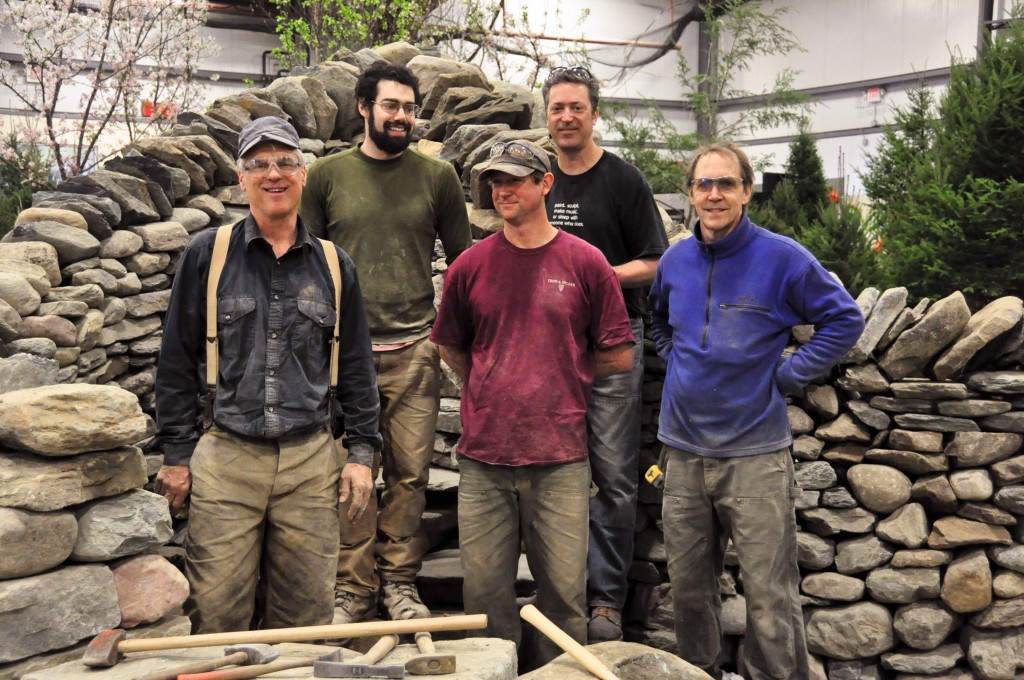Working Stone
Two days worth of indoor stone slinging last week completed the central stone feature at the Vermont Flower Show. Jared, T.J., Jamie, Brian and I finished up “Craggy Mountain” just as the trees, mulch and flowers closed in around us. On Friday I offered my slide-talk, “Working Stone,” to a standing-room-only crowd. The following words were part of the presentation’s introduction.
Wallers “work” stone. They shift and lift loose stone, bringing it together in a systematic manner to create structure.
But there’s another way of looking at the phrase, “working stone,” that is, from the point of view of the stone. A stone that’s a functioning part of a construction can be said to be “working.” It’s employed performing a specific task related to the strength and durability of the construction. If at any point in the process of building, a waller sets a stone contrary to the basic principles that define sound walling practice he or she will, sooner or later, have to admit, “That doesn’t work!”
So, to make it function well, to make it a strong working member of the wall, and not just its weakest link, the waller makes adjustments to ensure that the stone is set “end in, end out,” that it spans a joint between the stones under it, and that it provides a level bed for more stones to come. Every stone has at least six neighbors it needs to get along with. A wall is a community of working-class heroes, each stone playing a vital role in keeping it all together.
